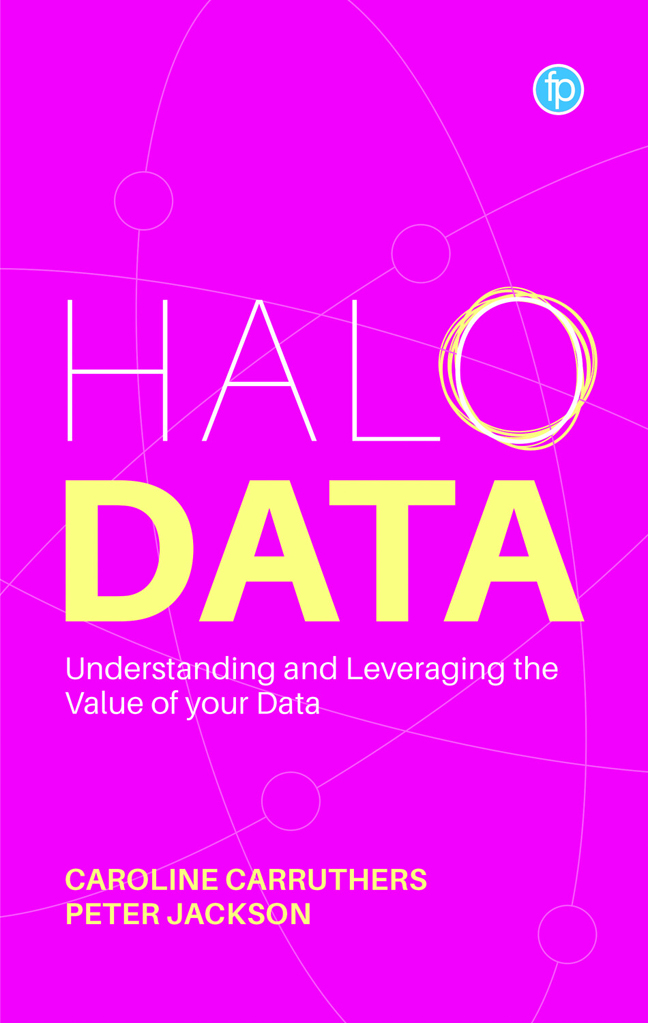Book contents
- Frontmatter
- Dedication
- Contents
- Figures and Tables
- About the Authors
- Acknowledgements
- Introduction
- 1 Who Owns the Definitions and Terms about Data?
- 2 What is Metadata?
- 3 Other Ideas of Data Value and Monetisation
- 4 Value from a Different Source
- 5 Hello Halo Data
- 6 Getting to Know Halo Data
- 7 Early Examples of Halo Data Approaches
- 8 Halo Data and Data Ethics
- 9 Halo Data Framework
- 10 Halo Data Applied Risk Assessment, Regulation, Customer, the Citizen
- 11 Halo Data and Storytelling
- Conclusion
- Index
5 - Hello Halo Data
Published online by Cambridge University Press: 17 December 2023
- Frontmatter
- Dedication
- Contents
- Figures and Tables
- About the Authors
- Acknowledgements
- Introduction
- 1 Who Owns the Definitions and Terms about Data?
- 2 What is Metadata?
- 3 Other Ideas of Data Value and Monetisation
- 4 Value from a Different Source
- 5 Hello Halo Data
- 6 Getting to Know Halo Data
- 7 Early Examples of Halo Data Approaches
- 8 Halo Data and Data Ethics
- 9 Halo Data Framework
- 10 Halo Data Applied Risk Assessment, Regulation, Customer, the Citizen
- 11 Halo Data and Storytelling
- Conclusion
- Index
Summary
A reminder about metadata
Let's remind ourselves of a question we posed in Chapter 2, ‘What is Metadata?’ Are we stuck in 1967? Are we stuck in the Summer of Love, Sergeant Pepper's Lonely Hearts Club Band, mini-skirts and the Ford Mustang (although we are both rather partial to the newer version of this car)? Perhaps more pertinent, are we currently stuck with an understanding and usage of metadata set by the initial thinking of 1967? Haven't we moved forward in our thinking? In Chapter 2 we also briefly explored the definition of ‘meta’ (‘after’, ‘beyond’, ‘more compre hensive’) and aligned it with metaphysics: beyond the physical laws of physics. So again we pose the question: shouldn't we be taking metadata beyond the accepted laws and definitions cast in the mould of 1967?
Again looking back to Chapter 3, we had two definitions of ontology and we discussed the second in some detail: ‘a set of concepts and categories in a subject area or domain that shows their properties and the relations between them’. We said that we would return to the first definition: ‘the branch of metaphysics dealing with the nature of being’. This first definition makes the link between ontology and metaphysics and nature of the ‘being’ of data. This may help us to understand the inherent value in data and how it changes. It may also help us to better understand the very nature of data and explore those concepts of the ‘single version of the truth’ or the ‘golden source’.
Data and metaphysics
Let's move the conversation along and step into the world of metaphysics. Consider the ‘old school’ view of the atom, its orbiting electrons and nucleus. This is synonymous with our current view of metadata: a few pieces of information (electrons) circulating around the data point (the nucleus), in very structured and defined paths. The electrons (the metadata) occupy very defined paths and orbits, and perhaps we can see these as the types of metadata: structural, descriptive and administrative, or perhaps even as the W7 framework. The orbits occupied by the electrons (metadata) are also very structured, so perhaps they are the ontology of the metadata. Applying these concepts from the old-school view of the atom to metadata demonstrates that our current view of metadata is very rigid and fixed.
- Type
- Chapter
- Information
- Halo DataUnderstanding and Leveraging the Value of your Data, pp. 41 - 48Publisher: FacetPrint publication year: 2023

